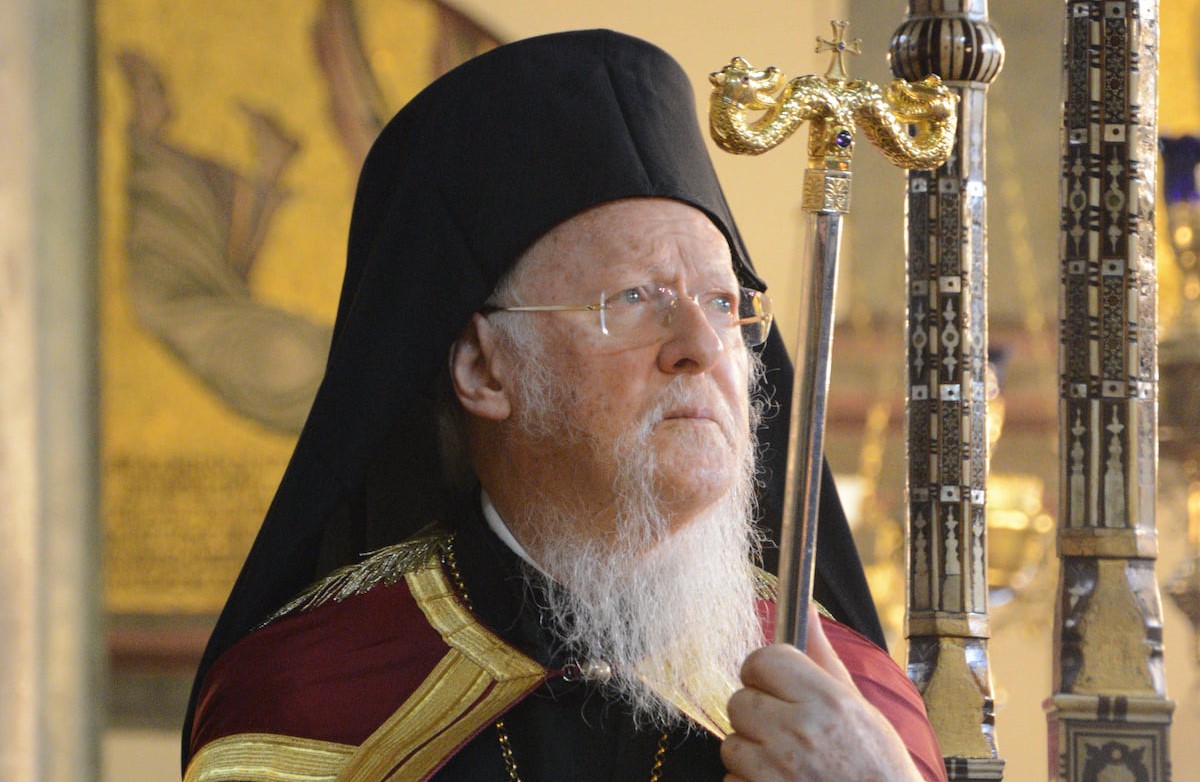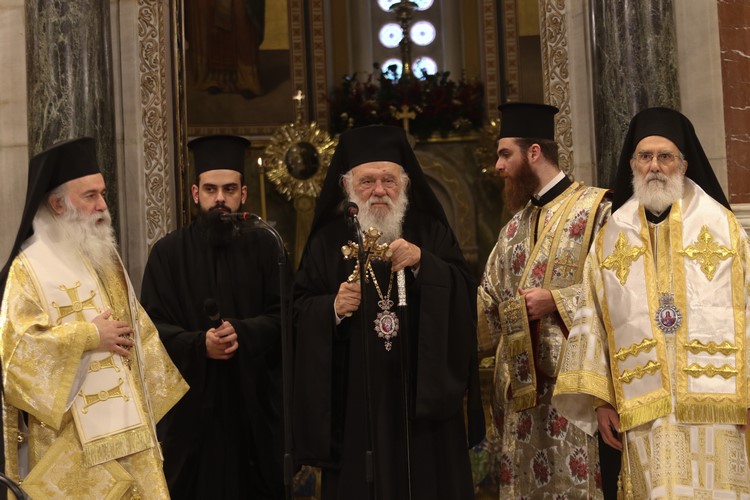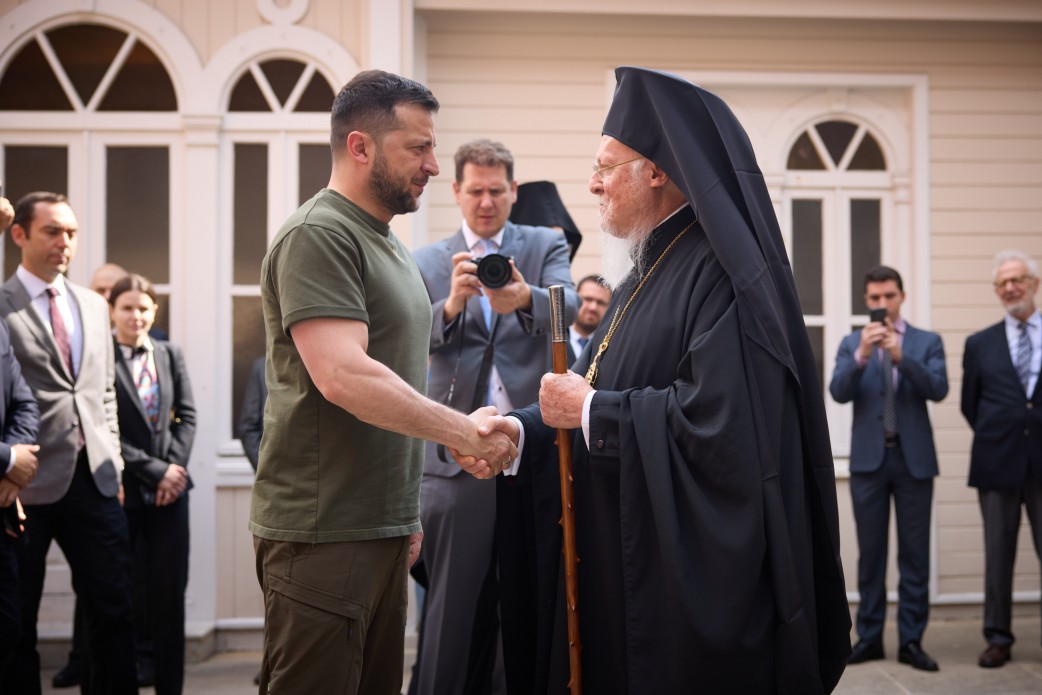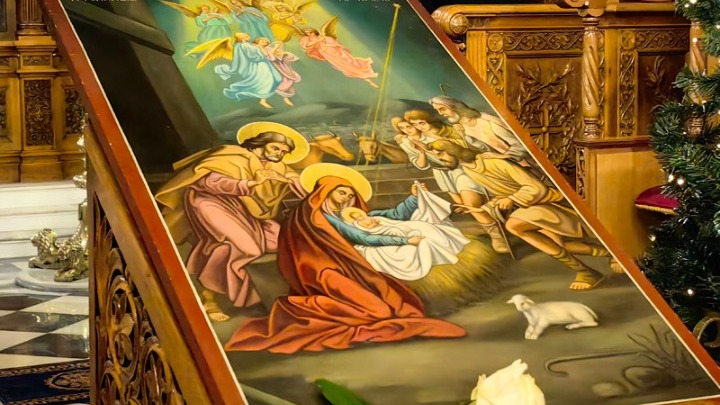Ecumenical Patriarch Bartholomew: “Let us travel along the way of Lent with fasting and repentance”


In his Catechetical homily marking the beginning of the Holy and Great Lent, His All-Holiness Ecumenical Patriarch Bartholomew emphasised, “The grace of our God of love has once again vouchsafed for us to enter the soul-benefiting period of the Lenten Triodion and arrive at Holy and Great Lent, namely to the arena of ascetic struggle replete with gifts from above and the joy of the Cross and Resurrection.”
In his homily, he emphasises, “We have already learned much from the impasse and self-righteous arrogance of the Pharisee, from the barren moralism and hard-heartedness of the elder son in the Parable of the Prodigal Son, and from the callousness and condemnation on the Day of Judgment of those who proved indifferent to the “least of our brothers” that were hungry, thirsty, foreigners, naked, ill, and imprisoned.”
“Yesterday, on Cheesfare Saturday, the Church honored the memory of the saintly men and women who shone in ascetic life. Saints are not only models for the faithful in the good fight of life in Christ and according to Christ. They are also our fellow travelers, friends and supporters in the ascetic journey of fasting, repentance, and humility,” he emphasised.
He also added: “After all, the communal aspect of life, the love for one another that does not seek its own, and the virtue of forgiveness, do not allow room for human rights-ism and complacency. An expression of such a spirit of “common freedom” and eucharistic asceticism is precisely the inseparable connection between fasting, charity, and participation in the parish and liturgical life of the Church.” “Living out this “Lenten spirit” within a Christian family leads us to the depth of truth in the ecclesiastical experience and constitutes the birthplace and source of Christian witness in our secularized contemporary world,” he emphasized.
Finally, he expressed his wish for us all to “travel with godly zeal along the way of Holy and Great Lent with fasting and repentance, in prayer and contrition, making peace within ourselves and with one another, sharing in life and showing ourselves to be “neighbors” to those in need through charitable works, forgiving one another and glorifying in all circumstances the God of mercy’s name.”
Please, read the full homily of the Ecumenical Patriarch:
The grace of our God of love has once again vouchsafed for us to enter the soul-benefiting period of the Lenten Triodion and arrive at Holy and Great Lent, namely to the arena of ascetic struggle replete with gifts from above and the joy of the Cross and Resurrection. During this blessed period, the spiritual treasure and dynamism of the ecclesiastical life as well as the soteriological reference of all its expressions are revealed with clarity.
We have already learned much from the impasse and self-righteous arrogance of the Pharisee, from the barren moralism and hard-heartedness of the elder son in the Parable of the Prodigal Son, and from the callousness and condemnation on the Day of Judgment of those who proved indifferent to the “least of our brothers” that were hungry, thirsty, foreigners, naked, ill, and imprisoned. Moreover, the value and power of humility and repentance, of forgiveness and mercy were revealed to us as attitudes that the Church emphatically calls us to nurture in the period that opens up before us.
Holy and Great Lent is a welcome time of spiritual, inner and physical purification and discipline, which—as we just heard in the Gospel passage that was read—traverses through fasting, which should not be practiced “so that others may see,” and through forgiveness of our brothers and sisters: “For if you forgive men their trespasses, your heavenly Father also will forgive you” (Mt. 6.14). After all, this is what we confess each day with the Lord’s Prayer, when we say: “as we forgive the sins of our debtors” (Mt. 6.12).
Yesterday, on Cheesefare Saturday, the Church honoured the memory of the saintly men and women who shone in ascetic life. Saints are not only models for the faithful in the good fight of life in Christ and according to Christ. They are also our fellow travelers, friends and supporters in the ascetic journey of fasting, repentance, and humility. We are not alone in our effort, but we have God, who encourages and blesses us, as well as the Saints and Martyrs, who stand beside us, and above all the First among the Saints and Mother of God, who intercedes for us all to the Lord. Sanctity is proof of the power of divine grace and the human synergy in the Church, which takes place through participation in the holy sacraments and fulfilment of the divine commandments. There is no “gratuitous piety” or “easy Christianity,” just as there is no “wide gate” or “spacious way” that leads to the heavenly Kingdom (cf. Mt. 7.13–14).
The Church constantly reminds us that salvation is not an individual, but an ecclesiastical event, a common discipline. During the God-guarded Holy and Great Lent, what becomes apparent for the spiritual life of the faithful is the definitive meaning of participation in the life of the community—that is to say, in the Christian family and parish, or else in the monastic coenobium. We would like to highlight the function of the Christian family as a community of life for the experience of Great Lent’s spirituality. Our predecessor among the Saints, John Chrysostom, described the family as “a small Church.”[1] Indeed, it is in the family that occurs the rendering of our existence into that of the church; it is there that the sense of the social and communal character of human life and the life in Christ as well as the love, mutual respect and solidarity are developed; and it is there that the life and joy of cohabitation are experienced as a divine gift.
The joint endeavor to apply the ecclesiastical rule and ethos of fasting in the context of the family manifests the charismatic dimension of ascetic life and, more broadly, the conviction that whatever is true, honorable, and rightful in our life comes to us from above; that despite our own cooperation and contribution, in the end they transcend whatever is humanly achievable and accessible. After all, the communal aspect of life, the love for one another that does not seek its own, and the virtue of forgiveness, do not allow room for human rights-ism and complacency. An expression of such a spirit of “common freedom” and eucharistic asceticism is precisely the inseparable connection between fasting, charity, and participation in the parish and liturgical life of the Church. Living out this “Lenten spirit” within a Christian family leads us to the depth of truth in the ecclesiastical experience and constitutes the birthplace and source of Christian witness in our secularized contemporary world.
Brothers and children, pray that we may all travel with godly zeal along the way of Holy and Great Lent with fasting and repentance, in prayer and contrition, making peace within ourselves and with one another, sharing in life and showing ourselves to be “neighbors” to those in need through charitable works, forgiving one another and glorifying in all circumstances the God of mercy’s name, which is above the heavens, beseeching Him to deem us worthy of reaching Holy and Great Week with purified minds and of worshipping with joy and delight His splendid Resurrection.
Holy and Great Lent 2024
✠ BARTHOLOMEW of Constantinople
Fervent supplicant for all before God
________
1. Commentary on the Letter to the Ephesians 20, PG 62.143.
To be read in churches on Cheesefare Sunday, March 17, 2024, immediately after the Holy Gospel.
____________
Source: Ecumenical Patriarchate / Photos: Nicholas Papachristou




